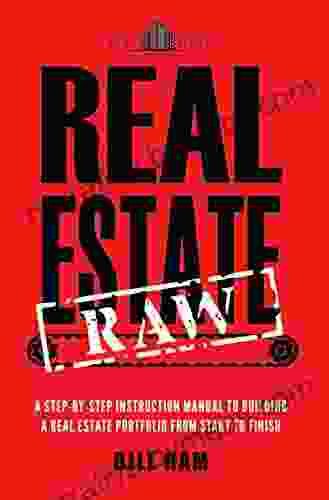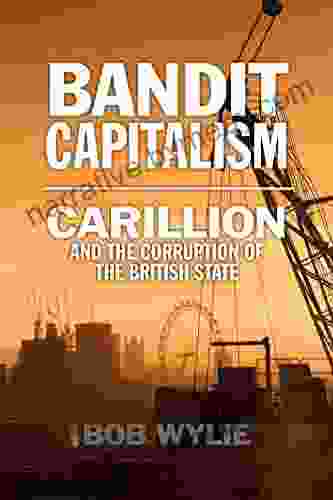Carillion and the Corruption of the British State: An Exposé of Corporate Greed and Political Failure

The collapse of Carillion in 2018 sent shockwaves through the British economy and raised serious questions about the integrity of the UK's infrastructure and public services. One of the largest construction companies in the country, Carillion's sudden demise left thousands of people out of work, billions of pounds of debt unpaid, and a trail of unanswered questions.
4.2 out of 5
| Language | : | English |
| File size | : | 2194 KB |
| Text-to-Speech | : | Enabled |
| Screen Reader | : | Supported |
| Enhanced typesetting | : | Enabled |
| Word Wise | : | Enabled |
| Print length | : | 377 pages |
| Lending | : | Enabled |
In this comprehensive exposé, we will delve into the murky world of Carillion and the systemic failures that led to its downfall. We will expose the rampant corruption, corporate malfeasance, and political shortsightedness that contributed to this corporate disaster and its devastating impact on the British people.
Corporate Greed: The Road to Ruin
Carillion's downfall was a classic case of corporate greed. The company's executives pursued aggressive growth strategies, often bidding for government contracts at unsustainably low prices to secure the business. This resulted in a constant need to cut costs, leading to a decline in the quality of work and a disregard for safety.
Carillion's reckless pursuit of profit also manifested in financial mismanagement and accounting irregularities. The company inflated its profits and concealed its true financial position to maintain a facade of stability. This deception allowed Carillion to continue securing government contracts despite its deteriorating financial health.
Corruption: The Rot at the Core
The corruption that permeated Carillion extended beyond its own corporate culture. The company engaged in questionable practices to secure contracts and influence decision-makers within the government and regulatory bodies.
Carillion used its political connections to gain access to privileged information and secure favorable terms on contracts. It also made substantial donations to political parties and individual politicians, blurring the lines between public service and corporate interests.
This systemic corruption created a culture of impunity, allowing Carillion to operate with a disregard for the public interest. The government's own oversight mechanisms failed to detect and prevent these corrupt practices, contributing to the company's eventual collapse.
Political Failure: A Dereliction of Duty
The British government bears significant responsibility for the Carillion debacle. Its policies and regulatory failures created the environment that enabled the company's corrupt practices to flourish.
The government's reliance on outsourcing public services to private companies, including Carillion, led to a fragmentation of the infrastructure sector and a lack of accountability. The privatization push prioritized cost-cutting over quality, creating incentives for companies to engage in unethical behavior.
The government also failed to provide adequate oversight and regulation of the construction industry. Regulatory bodies lacked the resources and independence to effectively monitor Carillion's activities and prevent the company from concealing its financial difficulties.
The Fallout: A Devastating Impact
The collapse of Carillion had a profound impact on the British economy and its citizens. The loss of jobs and the suspension of key infrastructure projects caused widespread disruption. The government was forced to step in and take over many of Carillion's contracts, at an estimated cost of billions of pounds to taxpayers.
The collapse also raised serious questions about the quality and safety of infrastructure projects built by Carillion. The company's cost-cutting measures led to shortcuts and substandard construction, posing potential risks to the public.
Carillion's downfall eroded public trust in the government and the construction industry. It exposed the vulnerabilities of the system and the need for urgent reforms to prevent similar disasters in the future.
Lessons Learned and the Path Forward
The Carillion scandal has taught us valuable lessons about the dangers of corporate greed, corruption, and political failure. To prevent similar catastrophes in the future, we need to:
- Strengthen corporate governance and accountability measures.
- Improve financial regulation and oversight of the construction industry.
- Reduce reliance on outsourcing and promote public ownership of essential services.
- Enhance transparency and public scrutiny of government decision-making.
- Cultivate a culture of ethical behavior and integrity in both the corporate and political spheres.
By addressing these systemic failures, we can create a more just and equitable society where corruption and corporate greed do not undermine the public interest.
The Carillion scandal was a wake-up call for the British state and a stark reminder of the dangers of unbridled corporate power and political complacency. It exposed a system riddled with corruption, mismanagement, and a disregard for the public good.
As we navigate the complexities of the 21st century, it is imperative that we learn from the failures of the past and work together to create a society that is resilient to corruption and dedicated to serving the common good.
4.2 out of 5
| Language | : | English |
| File size | : | 2194 KB |
| Text-to-Speech | : | Enabled |
| Screen Reader | : | Supported |
| Enhanced typesetting | : | Enabled |
| Word Wise | : | Enabled |
| Print length | : | 377 pages |
| Lending | : | Enabled |
Do you want to contribute by writing guest posts on this blog?
Please contact us and send us a resume of previous articles that you have written.
 Book
Book Novel
Novel Page
Page Chapter
Chapter Text
Text Story
Story Genre
Genre Reader
Reader Library
Library Paperback
Paperback E-book
E-book Magazine
Magazine Newspaper
Newspaper Paragraph
Paragraph Sentence
Sentence Bookmark
Bookmark Shelf
Shelf Glossary
Glossary Bibliography
Bibliography Foreword
Foreword Preface
Preface Synopsis
Synopsis Annotation
Annotation Footnote
Footnote Manuscript
Manuscript Scroll
Scroll Codex
Codex Tome
Tome Bestseller
Bestseller Classics
Classics Library card
Library card Narrative
Narrative Biography
Biography Autobiography
Autobiography Memoir
Memoir Reference
Reference Encyclopedia
Encyclopedia Barry C Lynn
Barry C Lynn Josef Feller
Josef Feller Van Lu
Van Lu Stephen Hui
Stephen Hui Azra Raza
Azra Raza Dennis Hopeless
Dennis Hopeless Beca Aberdeen
Beca Aberdeen Auberon Harte
Auberon Harte Barry Davies
Barry Davies Barry Stranack
Barry Stranack Assembil Books
Assembil Books Fourth Edition Kindle Edition
Fourth Edition Kindle Edition D J Holmes
D J Holmes David Aberbach
David Aberbach Julia Turshen
Julia Turshen Barrie Davenport
Barrie Davenport Rick J Scavetta
Rick J Scavetta Automated Retirees
Automated Retirees Barry Pickthall
Barry Pickthall Hans Ulrich Obrist
Hans Ulrich Obrist
Light bulbAdvertise smarter! Our strategic ad space ensures maximum exposure. Reserve your spot today!

 Bret MitchellUnveiling the Heartbreaking Story of Bana Alabed in Her Book: My Name Is Bana
Bret MitchellUnveiling the Heartbreaking Story of Bana Alabed in Her Book: My Name Is Bana
 Miguel NelsonPlace to Land: A Literary Journey That Will Captivate Your Heart and Stay...
Miguel NelsonPlace to Land: A Literary Journey That Will Captivate Your Heart and Stay... Manuel ButlerFollow ·13.2k
Manuel ButlerFollow ·13.2k Ruben CoxFollow ·8.1k
Ruben CoxFollow ·8.1k Braden WardFollow ·18.2k
Braden WardFollow ·18.2k Ken FollettFollow ·3.8k
Ken FollettFollow ·3.8k Bradley DixonFollow ·16k
Bradley DixonFollow ·16k Timothy WardFollow ·4.7k
Timothy WardFollow ·4.7k Cooper BellFollow ·19.8k
Cooper BellFollow ·19.8k Efrain PowellFollow ·9.1k
Efrain PowellFollow ·9.1k

 Ian McEwan
Ian McEwanWhy Didn't Anyone Say Anything? Uncovering the Hidden...
By [Author's...

 William Wordsworth
William WordsworthArthurian Legendarians: Faithless One - Part One – A...
In the realm of legendary tales, the...

 Corey Hayes
Corey HayesSSAT ISEE Prep Test: Arithmetic Review Flash Cards Cram...
Are you preparing for the SSAT or ISEE exam?...

 Robert Louis Stevenson
Robert Louis StevensonUnveiling the Essential Guide to Compliance: BCBS 239...
In the ever-evolving...

 Javier Bell
Javier BellJust Peachy: A Tale of Sweetness and Sassiness
Immerse yourself in a...

 Brent Foster
Brent FosterStep-by-Step Instruction Manual to Building a Real Estate...
Are you eager to embark on the...
4.2 out of 5
| Language | : | English |
| File size | : | 2194 KB |
| Text-to-Speech | : | Enabled |
| Screen Reader | : | Supported |
| Enhanced typesetting | : | Enabled |
| Word Wise | : | Enabled |
| Print length | : | 377 pages |
| Lending | : | Enabled |








